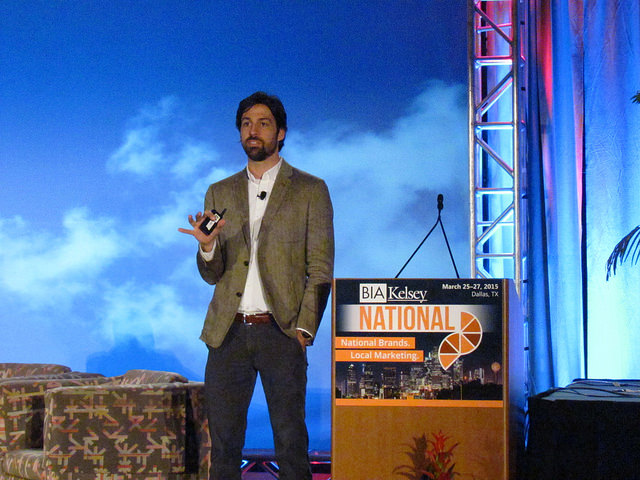
Leading up to the BIA/Kelsey NOW Conference, which will debut in San Francisco this June, we’re kicking off a regular series of blog postings on the Local On-Demand Economy (see our white paper). Twice per week, we’ll wrap notable news, fundings and executive moves in the LODE world.
(Click below for full stories)
Does Elon Musk’s Future Include a Place for Uber?
Uber may be the “greatest job creator” in the world right now, adding 50,000 drivers a month since the beginning of the year. But consider Tesla Founder & CEO Elon Musk’s vision of a world without drivers. In an interview at an NVIDIA conference this week, Musk said: “”In the distant future, I think people may outlaw driving cars because it’s too dangerous. You can’t have a person driving a two-ton death machine.” He predicts driving will eventually be illegal.
Bus rides, by contrast, may not be good LODE targets
Leap Transit launched its high-end bus service in San Francisco this week. A roughly 15-minute ride costs $6 and includes coffee, wi-fi and techie luxuries including an onboard concierge of sorts, according to this entertaining article from The Atlantic’s CityLab. This very unLODE model requires a steep capital investment in buses that appear to include reclaimed wood walls and Starbucks-like seating.
FundBox tackles the accounts receivable space
Accounts receivables delays cost small business significant lost opportunity the longer they drag on. If they can get paid faster, the revenue can be redeployed for growth, marketing and other purposes. FundBox, a San Francisco startup announced a $17.5 million round of financing from Khosla Ventures, Ron Conway’s SV Angel and other individual investors, to address this painful business problem.
Meanwhile, is syndication working magic for BuzzFeed?
At South by SouthWest in Austin, Texas, this week BuzzFeed founder Johan Peretti explained that he has effectively outsourced his site hosting to social networks where his company’s content is shared by users. While BuzzFeed.com attracts approximately 200 million users each month, its syndication network, which includes Facebook and Twitter, generates 18.5 billion impressions a month.




